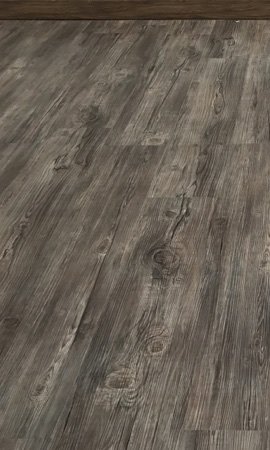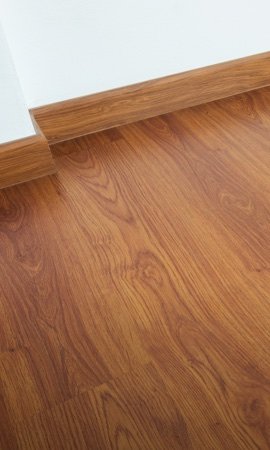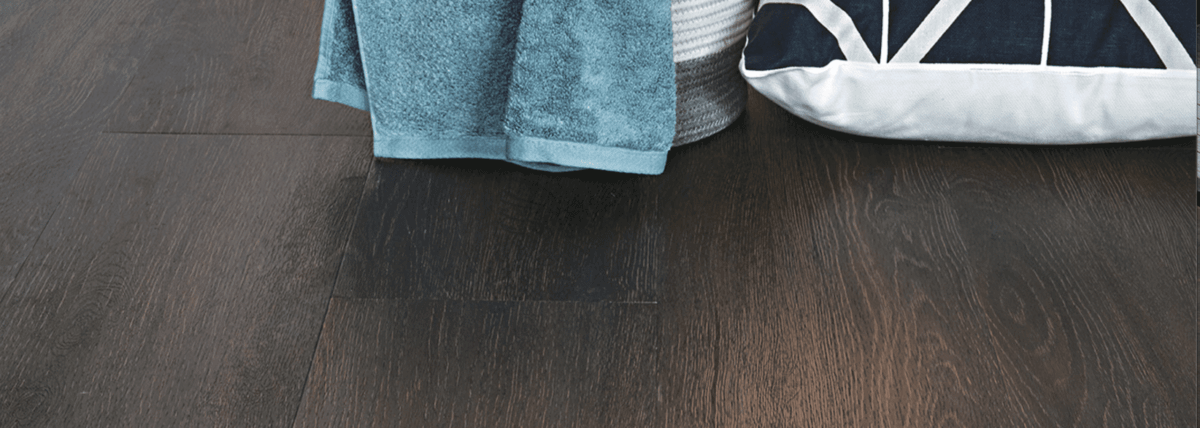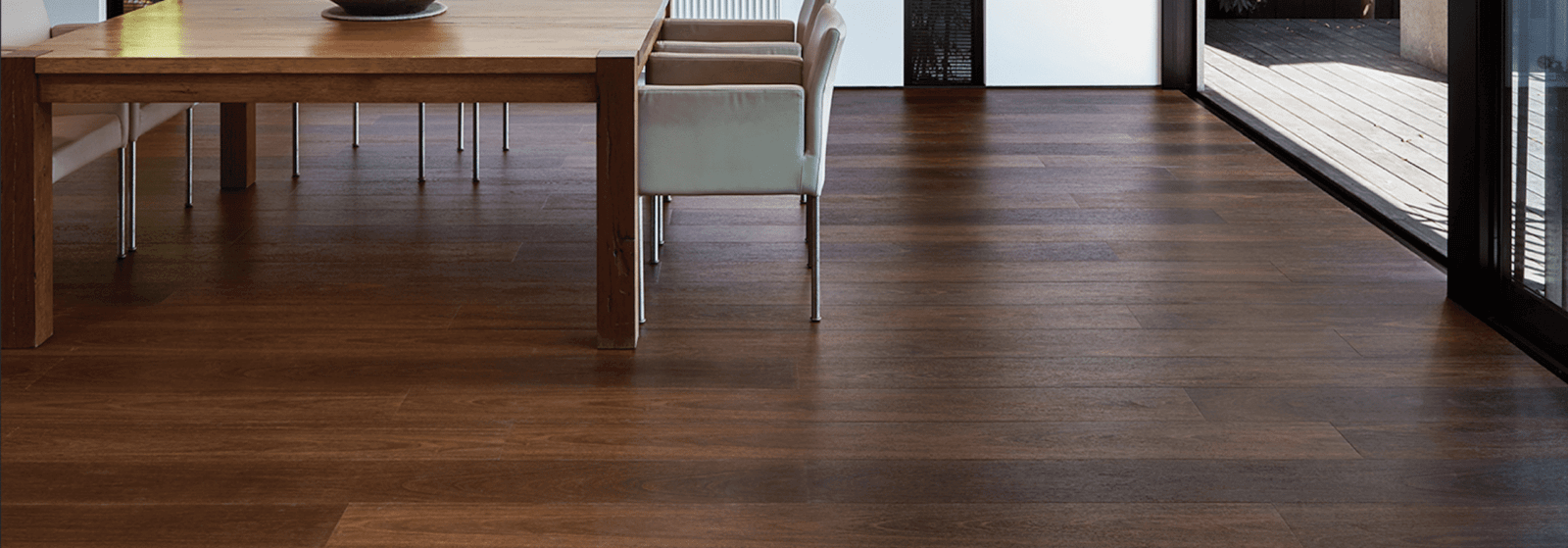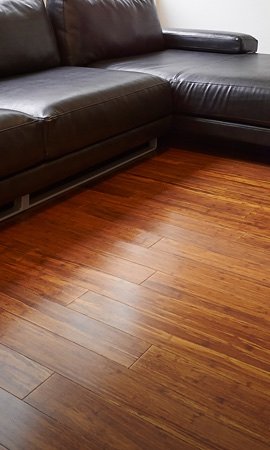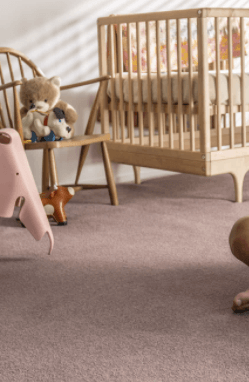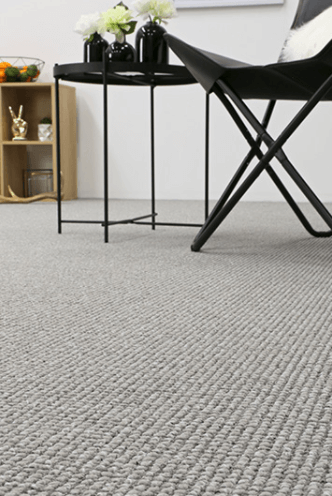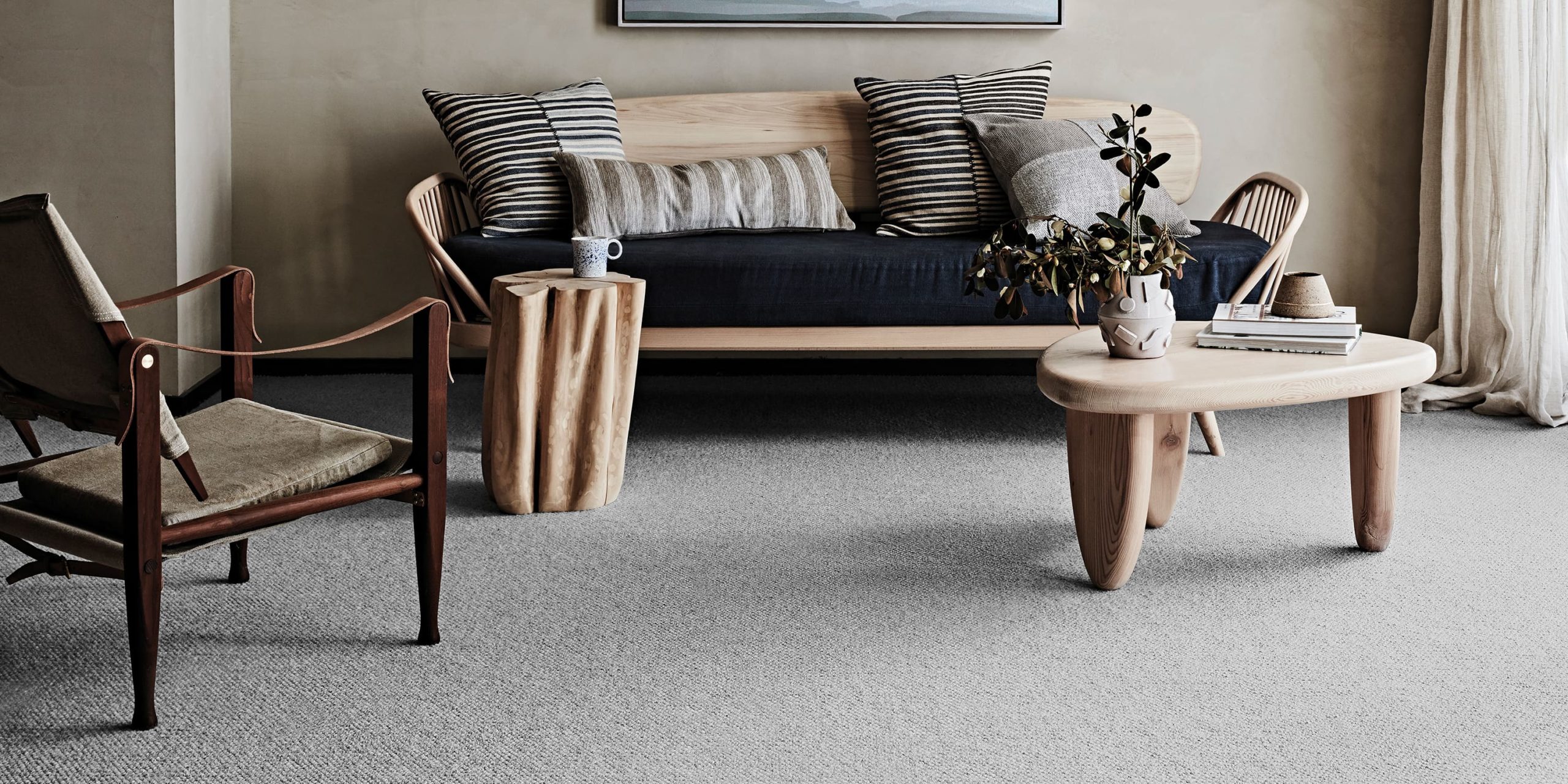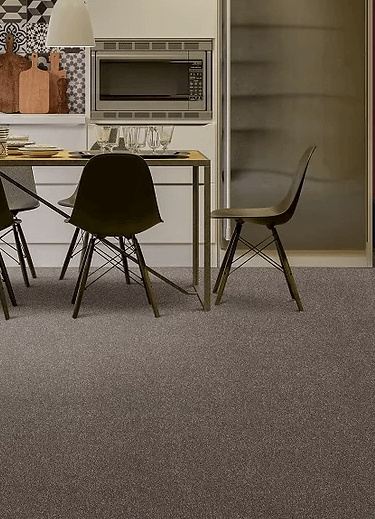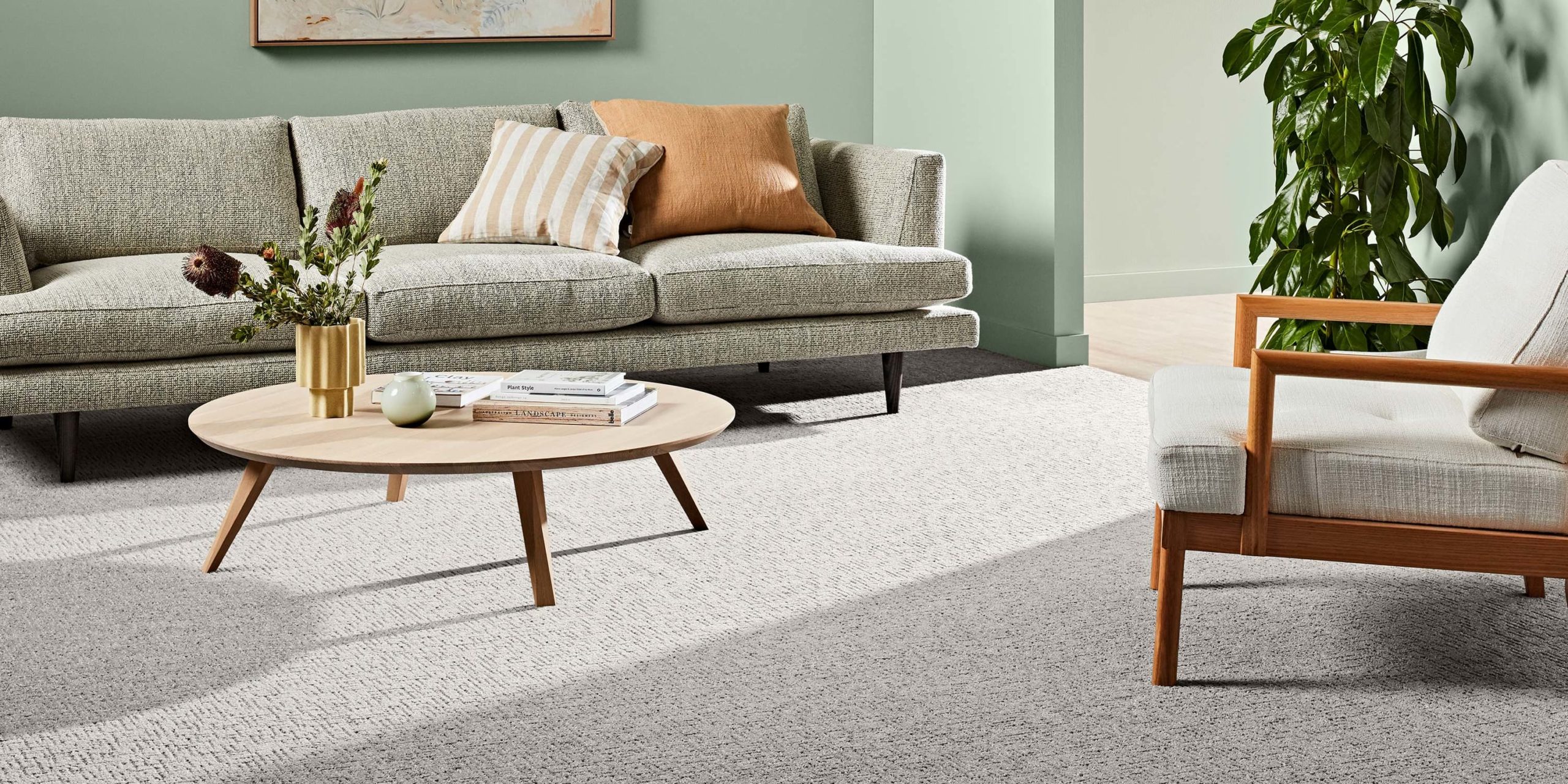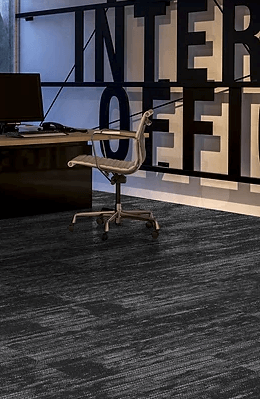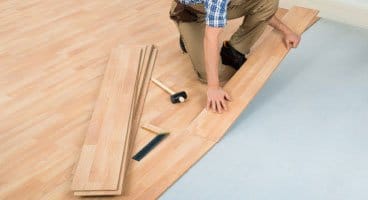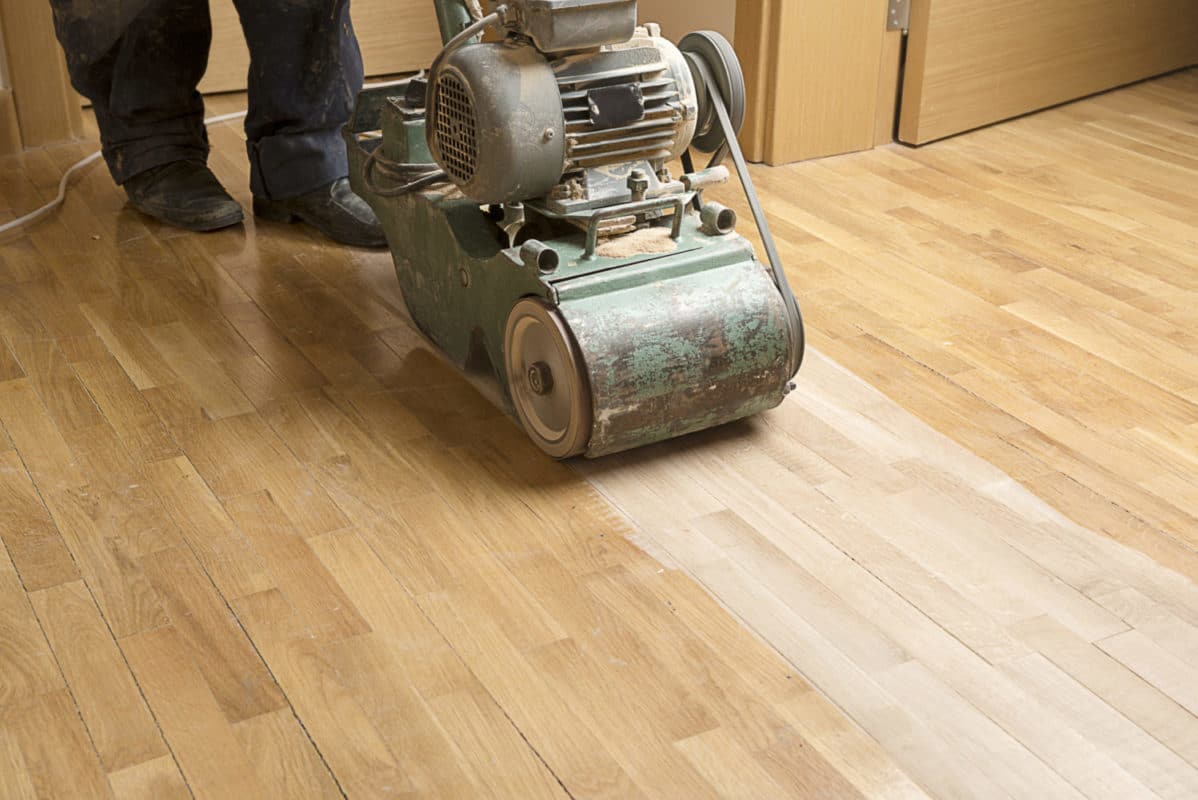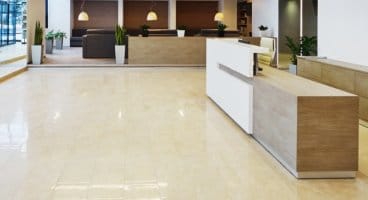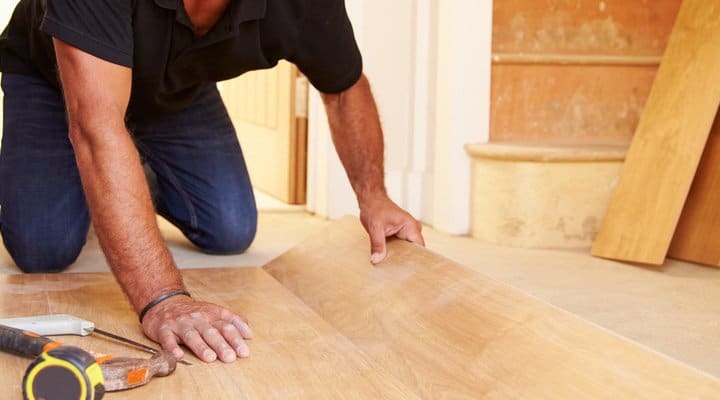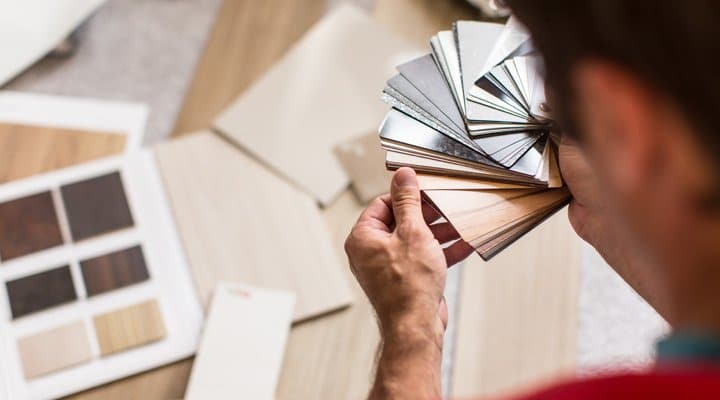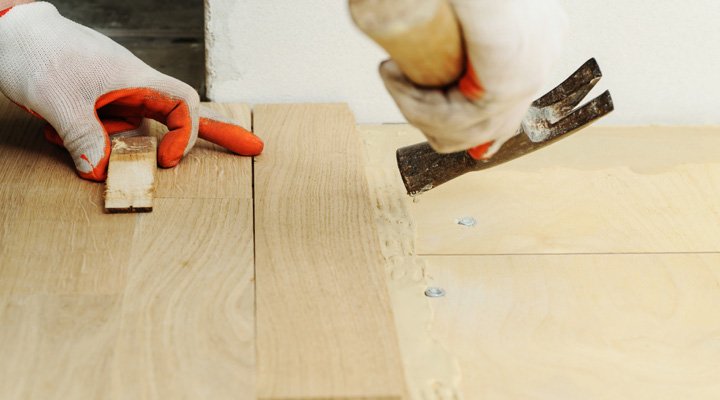

02 Feb Ultimate Guide to Vinyl Flooring
What Is Vinyl Flooring?
Vinyl flooring is a synthetic floor covering made from polyvinyl chloride (PVC) and fibreglass stabilisers. Although it is artificial unlike wood flooring, these planks are attractive and virtually limitless in design for many homeowners and businesses alike who desire something more durable than wood.
Vinyl flooring is also popular in wetter areas and commercial applications as they are 100% waterproof. The composition of this flooring option comprises of three primary layers that amalgamate into a strong and durable floor covering.
Wear Layer
The top layer is a clear urethane-based wear layer often referred to as the bodyguard of your floor. Its incorporation of PVC and sometimes additives like nylon provide vinyl floors protection as it is durable, stain and scratch-resistant.
Print Layer
Below this protective layer is a super-thin digitalized image that adheres to the vinyl core called the print layer. This layer complements the vinyl floor as it provides a hyper-realistic appearance of real timber on the top surface.
Core Layer
After this print layer, the PVC composition (or more commonly known as the vinyl core) is a very flexible and water-resistant material that is considered the main component of a luxury vinyl tile or luxury vinyl plank floor. The core is often reinforced with fibreglass for increased longevity and reduced expansion or shrinkage from temperature fluctuations.
Three types of vinyl flooring
One of the many reasons homeowners purchase vinyl flooring is because of their wide variety of options. This flexibility of choices allows you with the ultimate decision when considering your perfect home. The following are the types of vinyl floors that you can consider when purchasing vinyl.
Luxury Vinyl Plank Flooring
The most common vinyl flooring mimics the appearance of hardwood floors and because of technological advancements vinyl planks are able to have the appearance of different wood grains, species, colours and textures.
- Durable
- Stain-resistant
- Waterproof
- Easy installation
- Inexpensive (compared to hardwood)
- Easy maintenance (compared to hardwood)
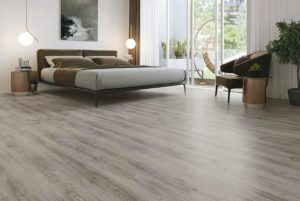

Luxury Vinyl Tiles
Vinyl tiles however provide a great level of customisation because of their wide range of options and construction types – ultimately resembling the look and feel of stone, marble and ceramic tiles. Luxury vinyl tiles are especially popular in restaurants, cafes and other hospitality areas, but can also look great in the right interior design of homes.
- Easy to replace
- Durable & waterproof
- Variety of colours and sizes
- Easy to install
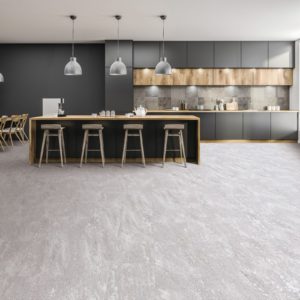
Vinyl Sheet Flooring
Unlike the rest, vinyl sheets are a roll of flooring that is extremely easy to install and can be laid on existing floors. This durable and low-maintenance option is great for bathrooms and kitchens, especially in commercial settings. Vinyl sheet flooring is very rarely used in residential applications as they don’t look or feel like real wood, unlike other flooring options.
- Slip Resistance
- Stain Resistance
- Abrasion Resistant
- Large range of designs
- Looks & Feels Artificial
Pros and Cons of Vinyl Floors
Whilst vinyl flooring is suitable for many purposes, there are definitely drawbacks that must be understood. This section will explain the pros and cons in detail so you know exactly what you are purchasing.
Pros
- Durable – can withstand most scratches and stains
- Waterproof – can handle spills without moisture ingress or swelling
- Affordable – Lower price point compared to hardwood
- Easy installation – glue down & loose-lay methods
- Slip Resistant – Vinyl planks are great for safety.
Cons
- Shorter Life-Span – compared to hardwood, vinyl planks can’t be sanded and polished
- Air Quality – Vinyl flooring may emit volatile organic compounds (VOCs) which are respiratory irritants.
- Difficult Repairs – Difficult to repair or remove as they are glued to the subfloor
- Colour Fading – Can experience discolouration & UV damage as the sun can cause it to fade over time.
Installing Vinyl Flooring
Great for beginners without all the complex tools, installing vinyl floors compared to other flooring types can be quite simple and an enjoyable DIY experience. Whilst they are not considered a ‘floating floor’, vinyl planks aren’t particularly difficult to lay. The following are installation options for you to consider.
Glue Down – As the name suggests, glue-down installations mean that you will need to directly stick the vinyl floors onto the subfloor. This process is a little more difficult than loose lay, and more expensive if outsourced to a contractor. All vinyl sheets require a glue-down installation.
Loose Lay – These planks can be installed without the need for any glue which makes it simpler and also DIY friendly if you are a hands-on person. The drawback is that they are more susceptible to expansion if exposed to high temperatures, which may result in cupping if there isn’t a sufficiently large expansion gap.
Vinyl Floor Comparisons
Now that you have an understanding of vinyl flooring, let’s directly compare the qualities with alternate options so you can make the most suitable decision for yourself.
Vinyl Flooring vs Hybrid Flooring
Hybrid floors are as the name itself states, a composite board made of different types of materials. This type of flooring combines the best attributes of other floors. They are both fully waterproof, and much tougher than natural wood flooring.
Durability
Both hybrid and vinyl floors are more durable than natural wood flooring and are used in commercial and residential usage because they can deal with heavier loads. Overall, luxury vinyl planks have more commercial-grade options and are hence more durable on average. In saying this, there are commercial-grade hybrid floors like Crest Hybrid Flooring.
Winner: Luxury Vinyl Flooring
Water Resistance
Vinyl floors are well known for their waterproof nature. Hybrid floors are similarly waterproof and in this manner, both floors are suitable for all household areas except bathrooms since water can still get under the planks.
Winner: Tie
Cost
Vinyl and hybrid floors are very similar in pricing, however hybrid tends to be ever so slightly more expensive.
Winner: Luxury Vinyl Flooring (Very close)
Installation
Unlike most luxury vinyl options, hybrid floors do not require glue and can be installed as floating floors. This makes it much easier to install, and DIY-friendly.
Winner: Hybrid Flooring
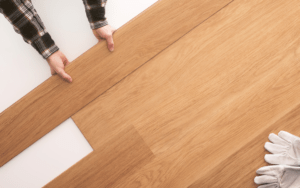

Vinyl Flooring vs Laminate Flooring
Unlike vinyl flooring, laminated wood floors is made of reconstituted fibreboards from recycled wood and resin (not natural wood). These synthetic floorboards are very durable on the surface.
Durability
Laminate flooring is more durable on average, as they use a more robust wear layer (made of aluminium oxide). When it comes to high traffic areas, higher-end laminate flooring always takes the win.
Winner: laminate Flooring
Water Resistance
Vinyl floors are 100% waterproof which means that the material simply does not absorb water. Laminate floors are not considered waterproof but water-resistant. This difference means laminate floors can partially resist water damage for limited periods of time, unlike vinyl floors.
Winner: Vinyl Flooring
Cost
Vinyl on average costs $30 – $50 per metre squared which is a similar price, although slightly higher than laminate floors, which typically cost between $20 – $60 per metre squared. If you are going for the cheapest option, laminate floors are going to win.
Winner: Laminate Floors
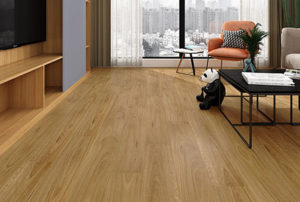

Vinyl Flooring vs Hardwood Flooring
Hardwood is not made of plastic like Vinyl Floors as they are harvested from slow-growing trees. They come in engineered format (a thin veneer of real timber bonded to a plywood core) or solid timber planks.
Durability
Because hardwood flooring is a natural material sourced directly from trees, they cannot match the manufactured durability of synthetic vinyl flooring. In fact, commercial-grade vinyl will outlive timber many times over.
Winner: Vinyl Flooring
Water Resistance
Similar to laminated floors, hardwood is not waterproof as they are made of solid timber. Prolonged exposure to moisture will cause them to warp. On the other hand, vinyl floors are waterproof.
Winner: Vinyl Flooring
Cost
Hardwood floors range from $90-$130 per square metre for material. For further details check out Floor Venue’s Ultimate Flooring Cost Guide. Although it has a higher cost, hardwood also has a higher resale value impact on properties. This means vinyl is definitely the budget-friendly option between the two.
Winner: Vinyl Flooring
Design
Hardwood flooring is essentially real timber – much more expensive, prestigious and gorgeous. This also means no pattern repetition between planks. Real wood flooring always has the best design.
Winner: Hardwood Flooring
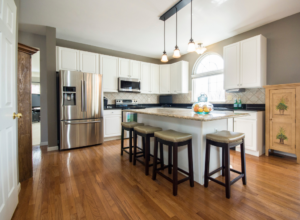

How to Clean Vinyl Flooring
Mopping
Wet Mopping – Did you spill or drop your drink and cause a mess on your brand new vinyl floor? You can worry less, wet mopping is a great way of cleaning this kind of mess made because vinyl flooring is fully waterproof.
This process requires water, a cleaning solution (homemade or store-bought), a bucket, and a mop. You can submerge your mop into the combined solution of water and the cleaning solution to clean up your floor. Cleaning once a week in areas with a lot of traffic is always a great idea in keeping your floor tidy and clean.
Dry Mopping – This is different from wet mopping because it does not use water. Dry mopping uses a fabric cloth or a disposable version that can attach to the handle that collects dust and litter. This method is not suitable for liquids and is the most effective on hardwood floors.
Vacuuming
Vacuuming is the most popular method of cleaning floors. However, this can be harmful to your vinyl floor (and even hardwood floors) if you do not do it correctly. Most vacuums contain a beater bar which is considered the floor nozzle. This can cause scratches to your floor, so when cleaning your vinyl floor do not vacuum with a beater bar.
Sweeping
Sweeping your floor is quite a self-explanatory concept that only requires a broom, dustpan and trash can. This is a quick and easy method that you can do on the weekends to sweep the dust and dirt that accumulate on your floor.
Thing to Avoid
- Remember when using pH-neutral cleaning products that are safe for your floor.
- Don’t leave liquid spills because they can seep into the subfloor through gaps.
- Remember not to use a beater bar when vacuuming.
- Avoid steam, steam cleaners can damage vinyl because of the heat generated.
